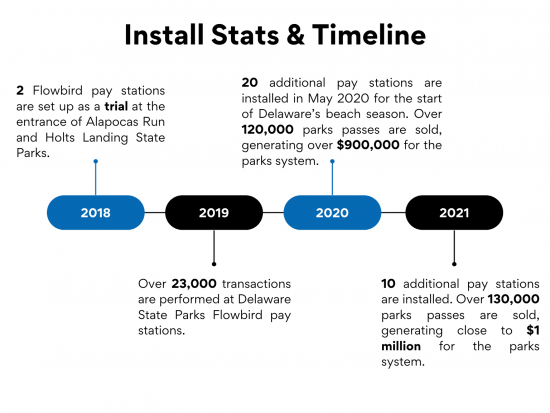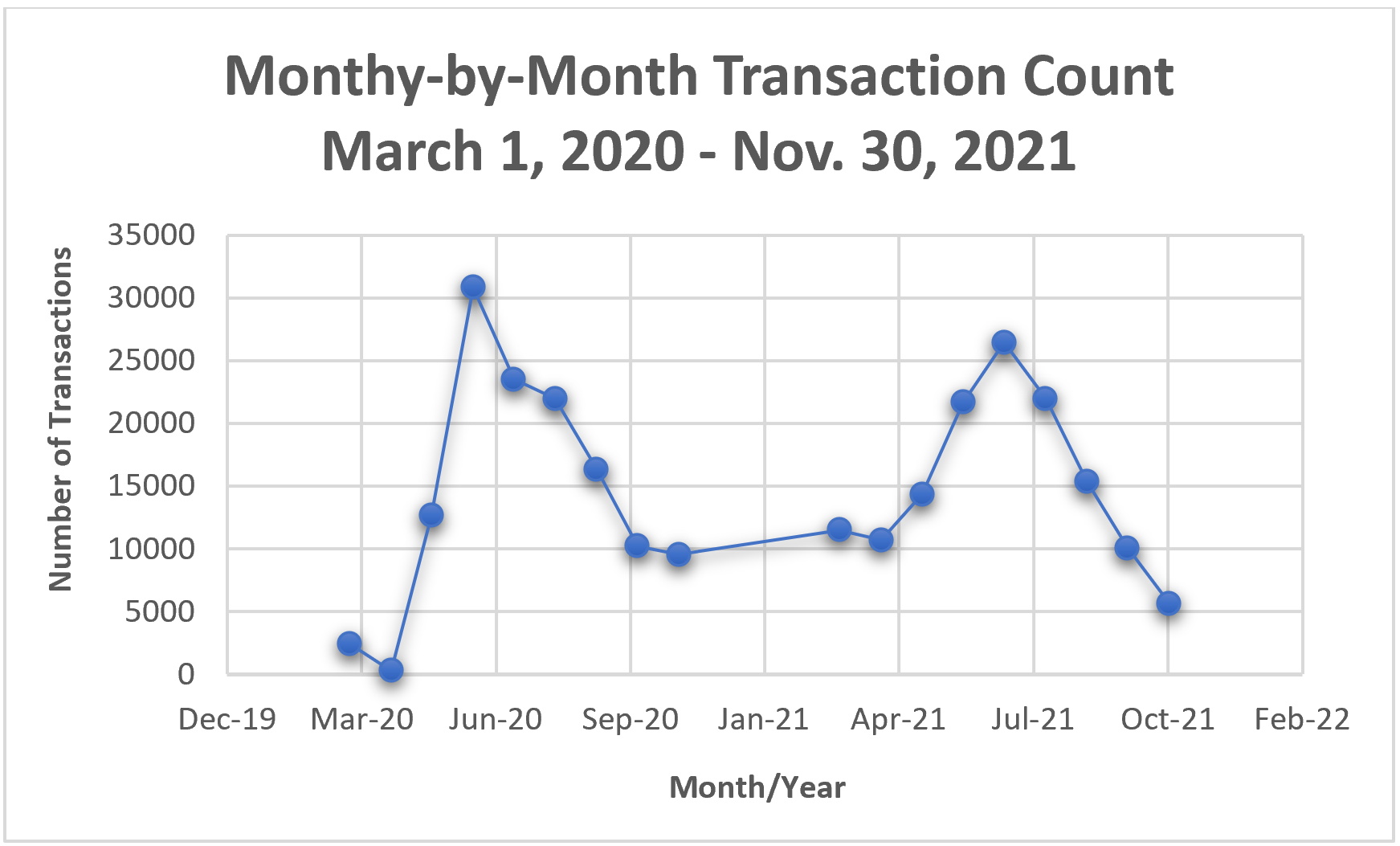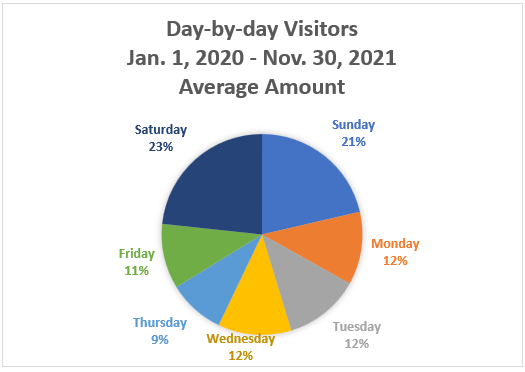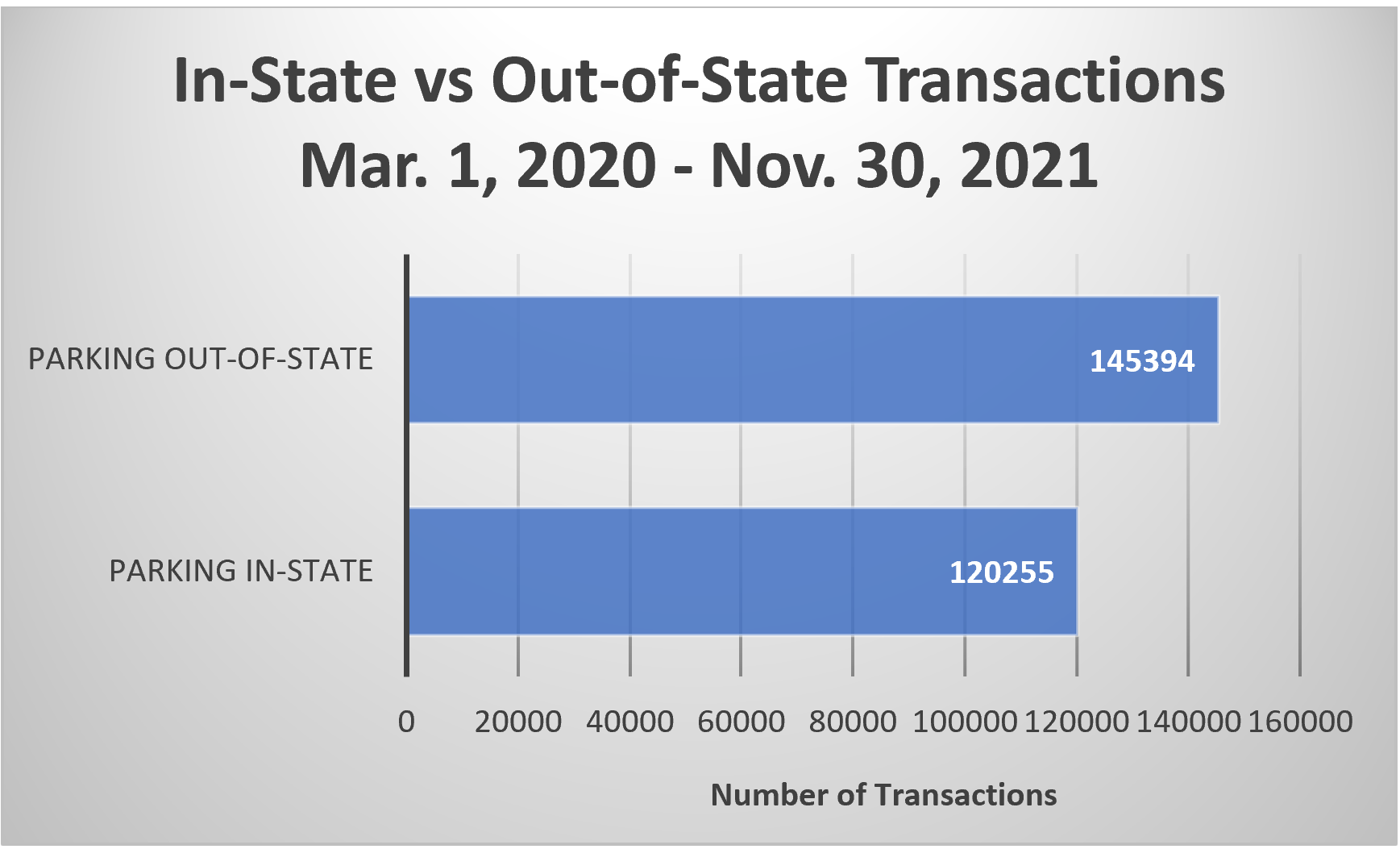How Delaware State Parks Streamlined Fee-Collection in the Post-Covid Era
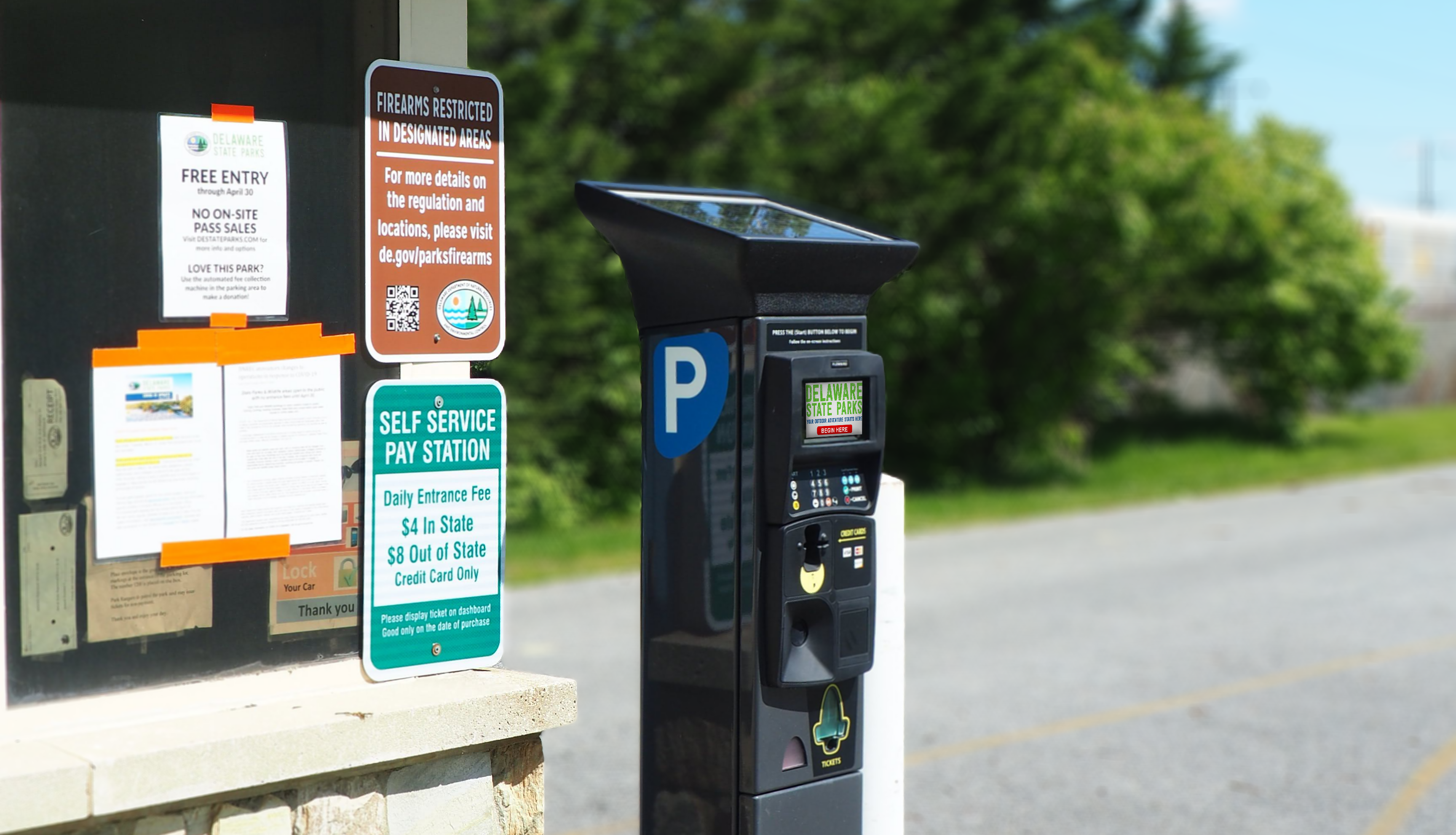
Lying in America’s ‘First State’ are Delaware State Parks, where the Division of Parks and Recreation oversees 17 scenic outdoor parks spanning across 200,000 acres.
The vast land and nature preserves offer 5 different campground sites, along with recreational opportunities such as hiking, camping, swimming, fishing, and nature tours. Roughly 5 million visitors from around the country pay a small entrance fee to visit the scenic destination, many purchasing annual passes to come back again and again.
Revenue generated from park entrance fees is utilized to operate and maintain all 17 parks, including trail maintenance, environmental and recreational programs, visitor amenities, guarded beaches, management of campgrounds, cabins and more.
Prior to 2018, visitors purchased their entrance passes on-site at a park office, or from a designated state park retailer. When fee attendants were not on duty, visitors deposited their fees in self-registration envelopes provided at park entrances and placed them in designated secure drop boxes. This age-old method of ‘honor box’ fee collection worked part of the time, with only a percentage of visitors paying the right amount. Ready for a change, the Division sought out an upgraded form of fee-collection – one that would both increase revenue to maintain the parks and allow Parks staff the time to perform their most important duties.
The Challenge
With a steady increase in popularity and visitation, the State Parks team began to see a need for updated park pass transaction methods for the busy seasons and when park attendants were away.
During the busy season, parking lots in some parks would hit capacity by 10am and lines outside of the park offices would become increasingly longer, taking up valuable day time from visitors. Visitors could forego the lines at the park office…if they had exact cash to pay the honor boxes scattered throughout the parks.
“They were cash only with no change back,” says Jennifer Pase, Assistant Manager of Administrative Services for Delaware State Parks, “There was no other option but for people to wait in line to pay at the attendant booth, or with exact cash at the honor boxes.”
Honor boxes came with challenges of their own. Parks staff would need to routinely go empty out the honor boxes of cash. Sometimes things would get jammed into the money slots. More often, there was a good amount of money missing all together, both from visitors forgetting to pay and theft.
The Solution
A trial took place in 2018 in which two Flowbird pay stations were placed along 2 main Park entrances; Alapocas Run and Holts Landing State Parks. During the span of 6 months, visitors were encouraged to use the pay stations to purchase their daily entrance passes.
The Flowbird pay stations allowed visitors to conveniently pay with a credit or debit card, functioning in pay-and-display mode for visitors to show receipts on their dashboard. Enforcement was done on foot, checking tickets in car windows for compliance.
The pay stations walk the user through the credit card transaction with an easy-to-read 7” full-color display. The pay station software is programmed to allow guests to choose between in-state and out-of-state park rates, as well as purchase admission tickets to the Fort Miles museum at Cape Henlopen State Park. The pay stations communicate wirelessly and run on solar power, adhering to the Division’s commitment to sustainability and environmental health.
“In that first year we saw a gradual increase in visitors using the pay stations,” says Pase, “We knew we were ready for phase 2.”
In 2019, 18 more pay stations were installed at park entrances, beach access points and boat launches. Several of the locations were in remote areas but obtained full communication without any issues. During that year, over 23,000 transactions were performed at the newly installed pay stations.
With the gradual success, phase 3 began in 2020 in which another 20 more pay stations were installed around busy parking lots to ease park office lines. In 2021, 10 additional pay stations were installed, several throughout the most active beach parking lots.
The Benefits
Since installing the Flowbird pay stations, Parks staff have been able to focus more time on park upkeep, and less time on emptying cash honor boxes and managing long lines at parks offices.
Visitors now have a touchless option when visiting the Delaware State Parks and can purchase both park passes and special permits all in one transaction on the pay stations. Those who prefer an in-person experience may still visit the park offices during staffed hours.
The pay stations can also be programmed in real-time to adjust product offerings and prices, such as annual park passes, nearby exhibits and special events.
Using Flowbird’s intelligent data management suite, Parks staff is now able to track how many vehicles are visiting each park throughout the day, data that is valuable to forecast future staff scheduling. Payment data is securely sent in real-time to Flowbird’s back-office, allowing staff to make future projections on Park funding for the years ahead.
